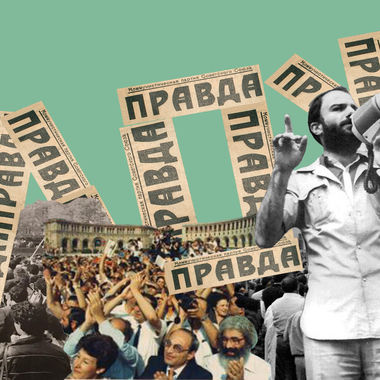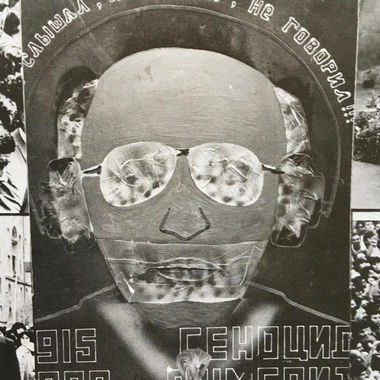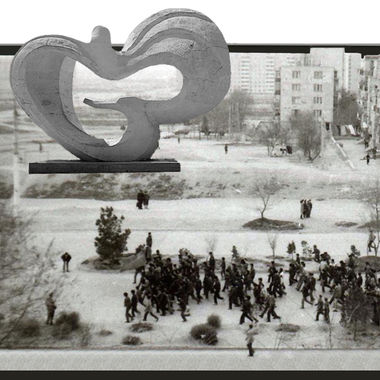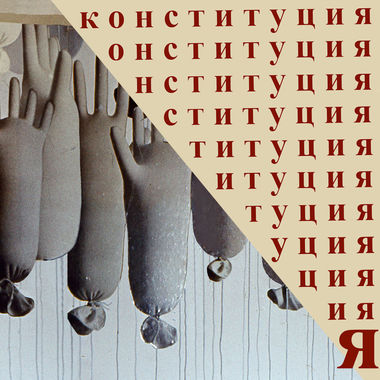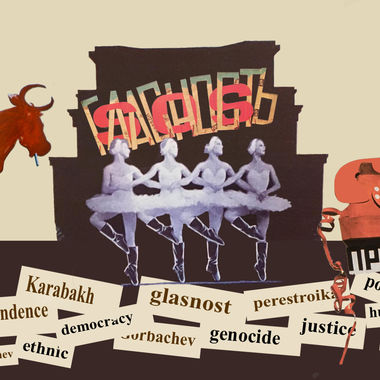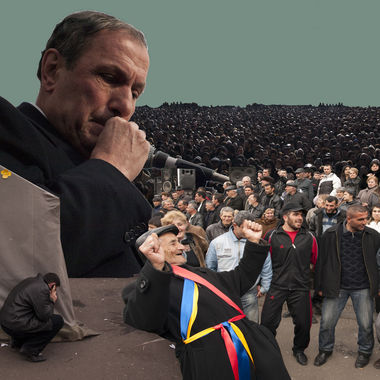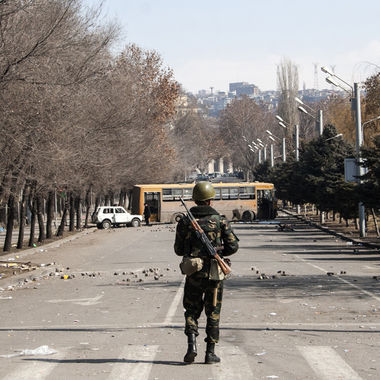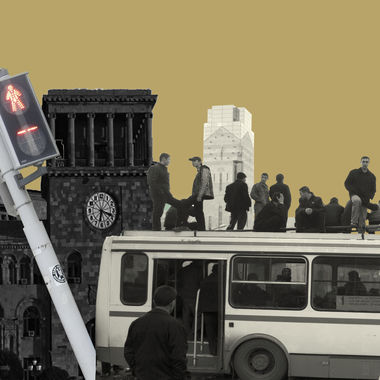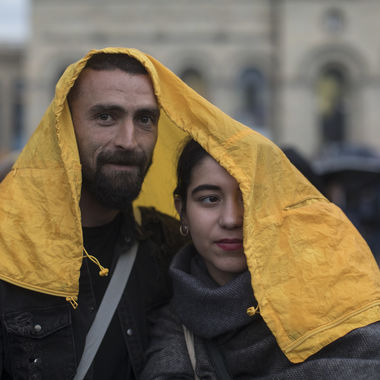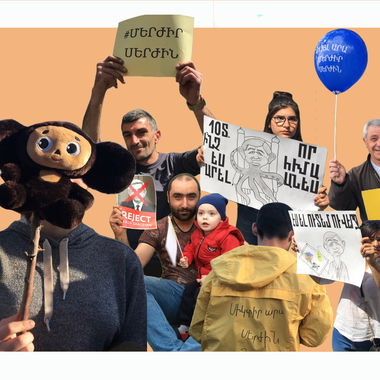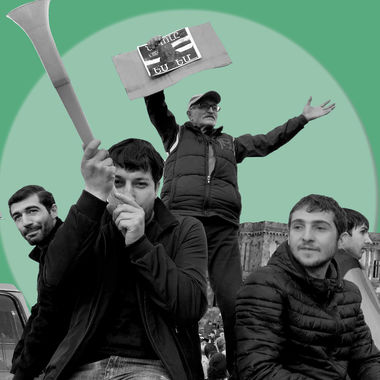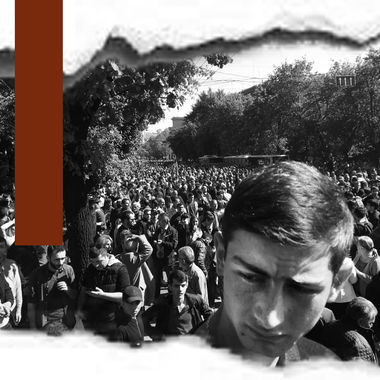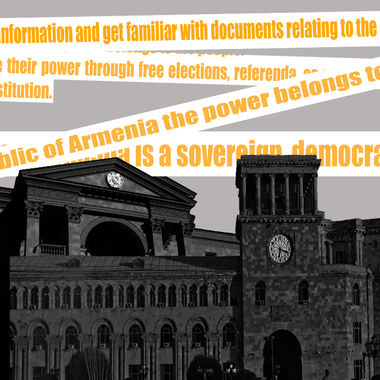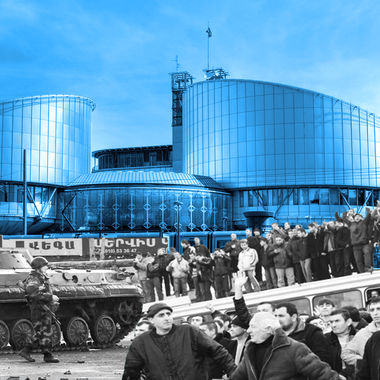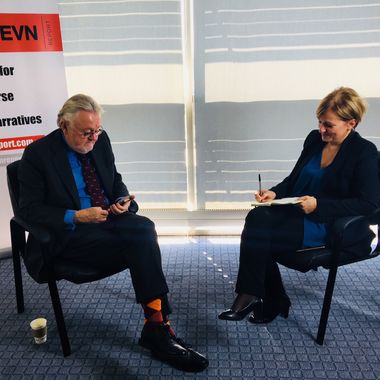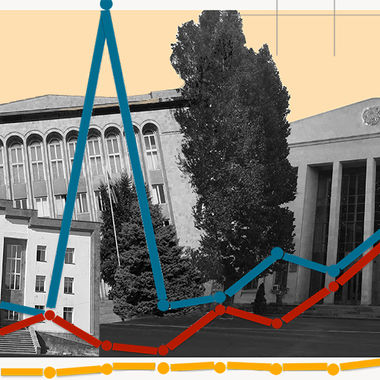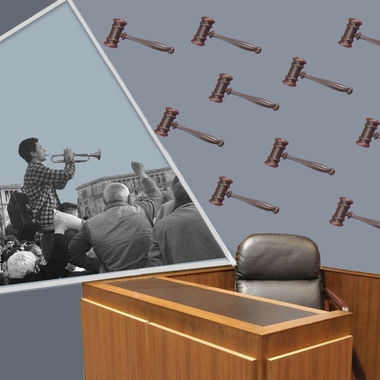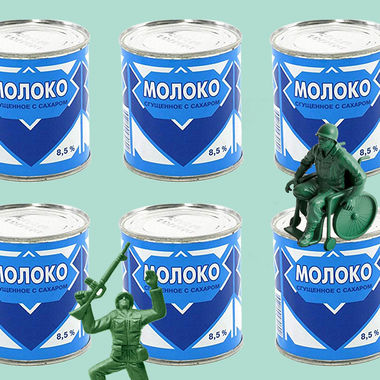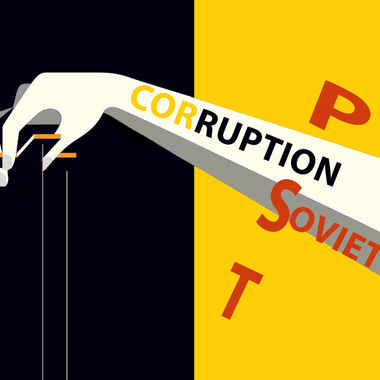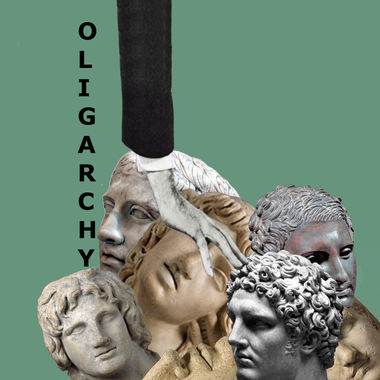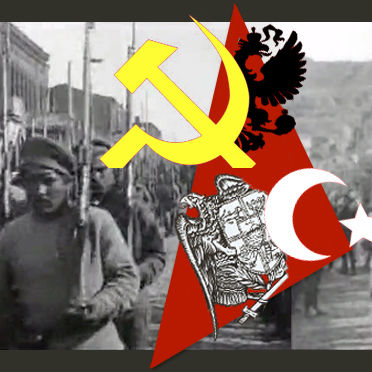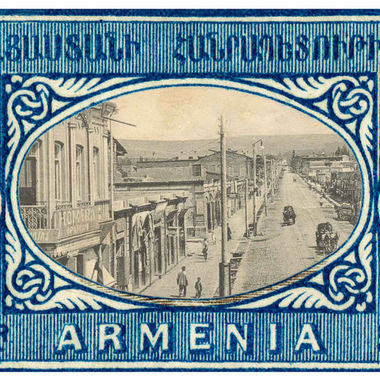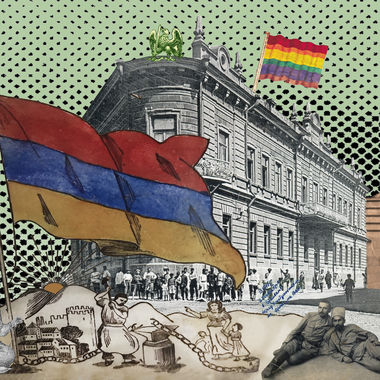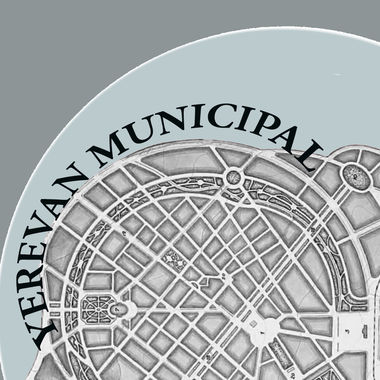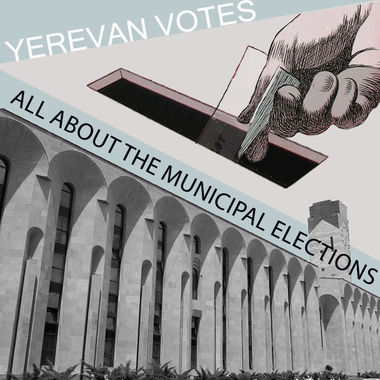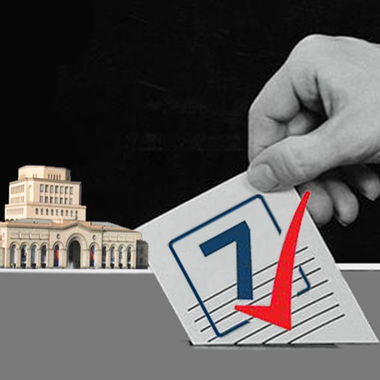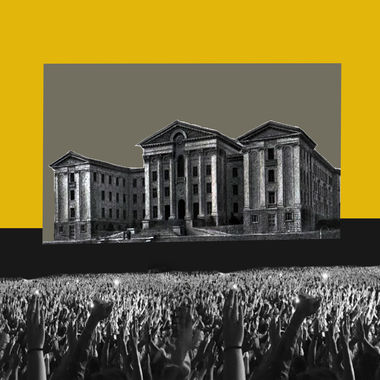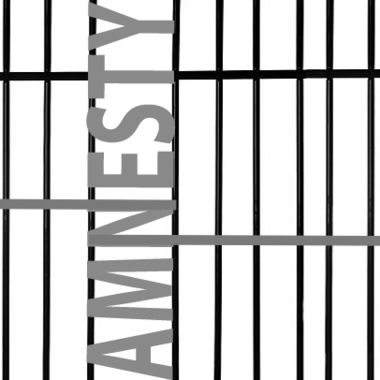
2018 was the year that could and will no doubt go down in contemporary Armenian history as one of the most riveting and transformative years on record. From the Velvet Revolution to landmark anniversaries to corruption revelations to snap elections, the “year that could” encompassed every human emotion from uncertainty and fear to jubilation and euphoria and in the process transfixing an entire nation and very possibly setting into motion a new chapter for Armenia and the Diaspora.
February 2018 - 30th Anniversary of the start of the Karabakh Movement
This year marked the 30th anniversary of the Karabakh Movement, a monumental event in the collective and historical memory of the Armenian nation. Mass demonstrations starting in early 1988 called for the reunification of the Nagorno Karabakh Autonomous Oblast (NKAO) - an autonomous enclave within Azerbaijan SSR - with Soviet Armenia. The popular movement made headlines around the world and led to the reawakening and transformation of the Armenian nation.
Starting in 1987, demonstrations were taking place in Soviet Armenia over environmental concerns that included demands for the shutdown of the Metsamor Nuclear Power Plant. These environmental concerns would ultimately transform into a wider pan-national movement not only for the people’s right to self-expression, but would pave the path to independence.
When the movement began, it did not bear any anti-Soviet bias and there were no calls for immediate independence for Armenia. However, by the spring of 1988, when it became clear that all possible solutions to the problem of Karabakh were unattainable within the framework of the Soviet system, this all changed. A symbolic moment was on May 28, 1988, the 70th anniversary of the First Armenian Republic (1918-1920) when Movses Gorgisyan hoisted the Armenian tricolor flag in Yerevan’s Opera Square.
A group of young intellectuals, who came to be known as the Karabakh Committee led the movement later transforming into the Pan-Armenian National Movement. The events of 1988 unravelled quickly and by 1991 both Armenia and Nagorno Karabakh had declared independence. Soon after, a full-scale war with Azerbaijan exploded lasting almost four years with the Armenians gaining control of Nagorno Karabakh, officially known today by its Armenian name, Artsakh.
The Karabakh Movement was one of the largest protest movements in Soviet history.
The Karabakh movement on EVN Report
Karabakh Movement 88: A Chronology of Events on the Road to Independence
The Karabakh Movement was a crystallizing moment in the collective and historical memory of the Armenian nation. In this first in a series of articles about the Movement, EVN Report presents a chronology of the events of 1988 which eventually paved the way to independence.
The Slogans, Posters and Language of the Karabakh Movement
By Harutyun Marutyan
One of the distinctive characteristics of the Karabakh Movement was that in less than three years, it drastically changed how the Soviet value system was perceived. The visual and verbal manifestation of this was evident through the transformation of the language and texts of the posters and signs used during the Movement.
There is Now a Statue of a Dove in Sumgait
By Lusine Hovhannesyan
Deciding never to use the word Genocide and then coming face-to-face with it again in a new context; between reading biographies of the victims of the Sumgait Pogrom over and over again and the urge to see who now occupies the homes of the Armenians of Baku and Sumgait, writer Lusine Hovhannesyan unexpectedly discovers a common yet obvious thread.
The Karabakh Movement and Azerbaijan
By Tatevik Hayrapetyan
Tatevik Hayrapetyan writes that the Karabakh Movement was a catalyst for domestic developments in Azerbaijan. Unlike in Armenia, however, alternative forces like the Azerbaijani Popular Front in Azerbaijan, couldn’t find a way to collaborate with the local Communist Party. The issue of Karabakh and anti-Armenian propaganda was thereby used in their struggle against the Communist regime.
The Karabakh Movement or What was Happening in Soviet Armenia 30 Years Ago
By Harutyun Marutyan
Harutyun Marutyan writes that the Karabakh Movement was not only the first of the Eastern European revolutions, but it played a considerable role in the democratization of Soviet society, was pivotal in the deconstruction of the Soviet Union and consequently in the elimination of the threat of communism.
1988
By Gevorg Ter-Gabrielyan
In this exceptionally honest and candid article, Gevorg Ter-Gabrielyan writes about his impressions from the first few months of the Karabakh Movement 30 years ago, with words he did not have nor could find at the time.
Tenth Anniversary of March 1
This year also marked the 10th anniversary of the tragic events of March 1, 2008 in Armenia, which left 10 people dead and scores injured. Mass protests led by Armenia’s first President Levon Ter Petrosyan (a member of the Karabakh Committee and a presidential candidate for the 2008 elections) followed the February 19, 2008 presidential elections in Armenia contesting their outcome, which had declared Serzh Sargsyan the winner. Around-the-clock protests started on February 21 at Freedom Square in Yerevan. In the early morning hours of March 1, security forces cracked down on peaceful protesters, putting into motion a series of tragic events that day and leading into the morning hours of March 2, which left ten people dead - eight civilians and two police officers.
During those protests, Nikol Pashinyan was an active participant often addressing the crowd from the podium; he was also a member of Ter-Petrosyan’s campaign team. Later, Pashinyan was charged with inciting mass disorder during the protests. Pashinyan went underground for about a year. On July 1, 2009, he came out of hiding and handed himself in to police. He was later sentenced to seven years imprisonment for “organizing mass disorders” on March 1-2, 2008. Pashinyan was released on May 27, 2011 as part of a general amnesty declared by the government.
Although several special commissions had investigated the events of that night that led to the death of ten people, no one was held accountable.
The March 1, 2008 events on EVN Report
Ten Victims, Ten Years, Zero Culpability
By Hamazasp Danielyan
Ten years after the worst post-election clashes in the history of Armenia’s independent statehood that left ten people dead and hundreds injured, the wounds are still fresh and the pain raw. In this personal essay, Hamazasp Danielyan writes about the events leading up to March 1, 2008 and reflects on his personal transformation.
2008: Post-Election Armenia in Images
By 4 Plus
On March 1, 2008, police units move in to put an end to ongoing protests disputing the results of the February 19, Presidential Elections in Armenia. In the aftermath ten people are dead, hundreds were injured. The reality before and after March 1st as seen through the lenses of the members of the 4Plus photo collective.
Autocratic Arrogance: Kocharyan’s Arrest, His Apologists and Accountability
By Nerses Kopalyan
Nerses Kopalyan examines and debunks the arguments that the arrest and detention of Armenia’s second President Robert Kocharyan is politically motivated and that the basis of the arrest lacks cogent and substantive legal foundations. Kocharyan has been charged with “overthrowing constitutional order” regarding the events of March 1, 2008 that left ten people dead.
Velvet Revolution - A Short Chronology
March 31 - The My Step civic initiative led by opposition leader Nikol Pashinyan begins a march from Gyumri to Yerevan to protest the nomination of President Serzh Sargsyan for the office of prime minister. Following a 2015 Referendum on a package of constitutional reforms, the country switched from a presidential to a parliamentary form of governance that would come into force following the second and final term of Sargsyan’s presidency in early 2018. At the time, Sargsyan had promised that he would not seek the office of the prime minister, a promise he reneged on which prompted Pashinyan’s initiative, leading to a nationwide movement that came to be known as the Velvet Revolution. That movement that toppled Sargsyan and the ruling Republican Party from power.
April 11 - While Pashinyan with a small group of supporters continue their march toward Yerevan, several hundred people stage a protest in front of the Republican Party of Armenia office protesting the upcoming vote in parliament that would see Sargsyan elected to the office of prime minister on April 17. The protesters later block several adjacent streets and march through Yerevan.
April 13 - Civil Contract leader Nikol Pashinyan arrives in Yerevan following a 14-day march. A number of civic initiatives have been organizing civil disobedience actions around the capital, including the Reject Serzh initiative. Several thousand people gather in Yerevan's Liberty Square to greet Pashinyan. He announces around-the-clock protests and with his supporters moves to France Square, shutting it down and paralyzing the downtown core of the capital.
April 14 - Pashinyan, along with hundreds of supporters storm the offices of Armenia’s Public Radio. Pashinyan demands a live broadcast to address the nation. After being denied a live broadcast, Pashinyan and the protesters leave Public Radio, continuing rallies in the city; a larger demonstration takes place that evening in France Square.
April 15 - Pashinyan announces that starting the following morning, they will close down all bridges and roads in Yerevan, including the metro system, and make their way to Baghramyan Avenue where the parliament is located.
April 16 - Acts of civil disobedience continue throughout the city. After storming several university buildings, Pashinyan calls students and protesters to congregate at France Square which has been shut down for the past three days. Armenia’s police issue a statement saying that Pashinyan has been carrying out an operation "blocking a number of streets considered vital for Yerevan, paralyzing traffic and restricting hundreds of citizens' constitutional right to free movement...the police is warning that such actions can cause crimes against life, health and property of citizens.”
People reassemble in France Square. Pashinyan announces that he and his colleagues who are MPs are now going to walk to "work" - in other words they will try to walk up Baghramyan Ave. which has been blocked by security forces and riot police. He says that they will walk with their hands open and that police are "our brothers." Thousands walk toward Baghramyan Ave. Protesters clash with riot police. Pashinyan attempts to cross over the barbed wire, in the process injuring himself. More than 40 people, including six police officers are injured as security forces use stun grenades. After being treated by medical personnel, Pashinyan returns and encourages protesters to continue civil disobedience actions the following day - including closing streets, interrupting metro service, and blocking roads to the Parliament building in order to disrupt the Parliamentary session which would install Serzh Sargsyan as Armenia's next prime minister.
April 17 - Serzh Sargsyan is elected as Armenia’s Prime Minister by parliament (77 for & 17 against votes). Mass protests continue in Yerevan and other parts of the country.
April 21 - After days of protests, President Armen Sarkissian arrives in Republic Square where tens of thousands of people continue to protest to speak with Nikol Pashinyan. Following their conversation, Pashinyan announces that a meeting has been arranged between him and Prime Minister Serzh Sargsyan the following morning at the Marriott Hotel.
April 22 - On the 10th day of mass civil disobedience in Armenia, opposition MP Nikol Pashinyan meets with Prime Minister Serzh Sargsyan at the Marriott hotel. In a very short meeting, Serzh Sargsyan tells Pashinyan that he considers the opposition's actions illegal. Pashinyan responds that the people's peaceful movement and civil disobedience will continue. Pashinyan makes it clear that he has come to the meeting to discuss the terms of Sargsyan’s resignation. Sargsyan responds saying that he refuses any ultimatum and adds that Pashinyan has apparently learned nothing from the March 1, 2008 post-election clashes which left 10 people dead. Sargsyan walks out of the meeting. Pashinyan, along with scores of protesters walk toward the Erebuni district of the capital.
On the same day MPs Nikol Pashinyan and Sasun Mikayelyan are arrested and charged with violating public order. Meanwhile tens of thousands of people continue to protest on the streets of Yerevan. That evening, a large protest takes place at Republic Square while the leaders of the movement are in prison.
April 23 - All opposition MPs are released from detention. Later that day, Prime Minister Serzh Sargsyan resigns. Over 100,000 people gather in Republic Square to celebrate. According to Armenia’s Constitution, when a sitting prime minister resigns, this triggers a process for the election of a new premier. The country’s parliament has two attempts within a 14-day period to elect a new prime minister.
May 1 - The special session in parliament to discuss and then elect the country's interim prime minister takes place. Opposition leader and candidate for Prime Minister Nikol Pashinyan calls on all citizens of Armenia to gather at Republic Square to follow the live stream of the session saying he has information that the Republicans might hinder the vote. After a very long session lasting about eight hours, Pashinyan is not elected Prime Minister with only 45 votes in favor and 56 against.
May 8 - A special session of parliament convenes again for another vote. Nikol Pashinyan is elected as the country’s prime minister with 59 votes in favor and 42 opposed. Earlier, Republicans had announced that they will secure just enough votes to ensure the election of the opposition leader. Later that evening, a mass rally takes place in Republic Square celebrating the election.
Criminal Cases and Arrests
Following the Velvet Revolution, Armenian law enforcement bodies, in particular the Special Investigative Service (SIS), revealed facts about post-election clashes that had taken place ten years ago on March 1, 2008. To date, charges have been brought against a number of high-ranking officials, including Armenia’s second President Robert Kocharyan, former Defense Minister Mikayel Harutyunyan, former Deputy Defense Minister Yuri Khachaturov, and former Deputy Prime Minister Armen Gevorgyan for attempting to overthrow the country's constitutional order.
The Velvet Revolution on EVN Report
Portraits From Republic Square
By Eric Grigorian
Photojournalist Eric Grigorian's series of portraits from Republic Square where thousands gathered in protest as Yerevan enters the seventh day of mass rallies, protests and innumerable acts of civil disobedience.
Political Suicide: An Autopsy of the Sargsyan Administration and the Endurance of Armenia’s Institutions
By Nerses Kopalyan
Dr. Nerses Kopalyan applies two conceptual frameworks from political science - prospect theory and historical institutionalism - to understand how Serzh Sargsyan’s Administration collapsed in the face of an unprecedented popular uprising in Armenia.
Was the Revolution Justified?
By Simon Clarke
Was there just cause for the Velvet Revolution on substantive or procedural grounds? Dr. Simon Clarke applies a number of principles to the events that took place in Armenia earlier this year to determine whether the revolution was justified.
The Stories Behind the Story of a Revolution
By Maria Titizian
A series of extraordinary events in early spring of 2018 that came to be known as the Velvet Revolution fundamentally changed Armenia’s political landscape. EVN Report’s Maria Titizian reflects on some of her personal experiences during those heady days.
Armenia’s New Government: Who’s Who
The biographies of the new interim cabinet formed by Prime Minister Nikol Pashinyan and other appointments.
Robert Kocharyan
Kocharyan was arrested on July 27 and charged with overthrowing the constitutional order in the country when he mobilized Armenia’s Armed Forces against peaceful protesters on March 1, 2008. During the 2008 elections, Serzh Sargsyan was elected with 52.8 percent of the vote, effectively beating presidential candidate and Armenia’s first President Levon Ter Petrosyan. However, there were claims of electoral fraud and abuse of administrative resources. Levon Ter-Petrosyan and his supporters, refused to accept the results of the election, and launched peaceful, around-the-clock demonstrations boycotting the results. Robert Kocharyan, who had just ended his second and final term as president, ordered security forces to clear the demonstrators which led to a series of tragic incidents where ten people were killed and more than 300 were injured.
Nikol Pashinyan, who was one of the leaders of that demonstration and the chief supporter of Ter-Petrosyan at the time, on several occasions stressed that Robert Kocharyan and Serzh Sargsyan should be held accountable for the killings on March 1. Following the Velvet Revolution and his election as Prime Minister, Pashinyan has prioritized the investigation of the March 1st events.
On August 13, Kocharyan was released from pretrial detention by the decision of the Court of Appeals which recognized Kocharyan’s immunity as a former President. The court based its decision on Article 140 of the Armenian Constitution: “During the term of his or her powers and thereafter, the President of the Republic may not be prosecuted and subjected to liability for actions deriving from his or her status.” The Special Investigative Service denounced the ruling, saying that it is illegal and that the Court of Appeals “overstepped the bounds of its authority.”
Right after the Court’s decision, Kocharyan’s lawyers announced that he will give a press conference the following day at Erebuni business center. But starting from early morning a group of citizens blocked the entrance of the building and later stormed the conference hall where the press conference was to be held. Organizers attempted to lock the doors to the room, but were unsuccessful. About a hundred activists were chanting "Robert murderer" and "life sentence" directed at Kocharyan.
After activists forced the cancellation of Kocharyan's press conference expressing their dismay towards the decision made by the Court of Appeals, they walked to the Prosecutor General's office to demand that the Prosecutor General appeal to the higher Court of Cassation to ensure Kocharyan remained in custody. They were joined by a number of family members of those who were killed in the March 1, 2008 crackdown.
Later that day, Kocharyan’s office commented on the failed press conference and said that the incident confirmed that the ruling authorities did not tolerate dissent and will allow political persecution against those opponents who pose a serious concern for them. In an exclusive interview to Yerkir Media on August 17, Kocharyan claimed that the criminal charges brought against him were “unfounded, artificial and an obvious political persecution, a vendetta,” and that his team of lawyers was able to easily counter the charges.
During his interview, when asked why he implemented a state of emergency on March 1, Kocharian said that the state of emergency was declared only when a police captain had already died, when dozens of cars had been burned, barricades had been constructed and security forces had been attacked with molotov cocktails. Not declaring a state of emergency would have been seen as inaction by the president he claimed. “It was a direct threat to the constitutional order," he told the reporter.
On November 15, the Court of Cassation overturned the decision of the Court of Appeals to release Robert Kocharyan and on November 27 the Court of Appeals initiated a new examination into the matter, which ruled that Kocharyan should be held in pre-trial detention, yet again. Kocharyan was not in court during the ruling, but went to prison of his own volition. Kocharyan’s lawyers have said that they will apply to the European Court of Human Rights.
On December 11, the supporters of Kocharyan staged a protest in Republic Square demanding his immediate release. The organizer of the protest Armen Minasyan, chair of the “Armenian National Alliance” initiative stressed that Kocharyan should not be charged for the bloody events of March 1, 2008 and that his actions were within the scope of his powers as a president.
Yuri Khachaturov
The Armenian chief of the Russian-led Collective Security Treaty Organization (CSTO) Yuri Khachaturov, was charged on July 27 with overthrowing Armenia's constitutional order amid a probe into the 2008 post-election crackdown. The 66-year-old Khachaturov, who was born in Georgia, was the CSTO's secretary-general. He had been chief of the General Staff of Armenia's armed forces from 2008-16.
Khachaturov was released after paying a bail of $10,000. He told reporters that he denied any wrongdoing. He returned to Moscow on August 4 and fully resumed implementation of his duties. After Khachaturov was dismissed from the post of the secretary general on November 2, the Armenian government attempted to appoint another Armenian secretary general who would serve until 2020, when Khachaturov’s three-year tenure was supposed to expire. On several occasions, Belarusian President Alexander Lukashenko made some controversial comments regarding Armenia’s rotating CSTO presidency (Belarus is poised to take on the next round of the presidency of CSTO) but so far consensus has not been reached among the member states.
Mikael Harutyunyan
Mikael Harutyunyan, who was Armenia’s Defence Minister during the March 1 2008 events, was also been charged on July 3 with “usurping state power,” an arrest warrant has been issued however, Harutyunyan’s whereabouts are unknown.
Armen Gevorgyan
Criminal charges were brought against former Armenian Deputy Prime Minister Armen Gevorgyan, who was the Secretary of the National Security Council during the March 1, 2008 unrest. Gevorgyan was charged in August of this year with obstructing justice by pressuring members of Armenia’s Constitutional Court to vote in favor of validating the results of the 2008 February presidential elections.
New charges against Gevorgyan were brought just four days after former President Robert Kocharyan was again arrested on December 7. Similar to Khachaturov and Kocharyan, Gevorgyan is also charged with overthrowing the country’s constitutional order. Additionally, Gevorgyan is charged with money laundering and corruption. Gevorgyan categorically denied all the charges brought against him and characterized them as fabricated accusations. On December 14, the Yerevan Court of General Jurisdiction denied the petition by the Special Investigative Service to detain Armen Gevorgyan as the investigation moves forward.
Secret Recording Released
On September 11, a secret recording of a private telephone conversation between the Director of the National Security Service Artur Vanetsyan and Head of the Special Investigative Service Sasun Khachatryan was released to the public regarding a number of high profile criminal cases in Armenia. The conversation was about the arrest of the country’s second President Robert Kocharyan who was charged with attempting to overthrow constitutional order during the March 1, 2008 crackdown by security forces. A criminal case was launched under the criminal code for violating the confidentiality of the conversation.
The recording caused an uproar in the country, and after it was released and shared widely on social media networks, Prime Minister Nikol Pashinyan went live on Facebook to address the issue. He reaffirmed that when he summarized his 100 days in office back in August, he made it very clear that all those responsible for March 1 would be revealed and punished according to the law.
Immediately following Pashinyan’s Facebook live Artur Vanetsyan and Sasun Khachatryan held a press conference regarding the secret recording. Vanetsyan confirmed the authenticity of the telephone conversation and expressed astonishment. He explained that the conversation in question happened on the day of Robert Kocharyan’s verdict. He said, “Taking into consideration that the second president and Khachaturov, Secretary General of CSTO and who was Chief of the General Staff of the Armenian Armed Forces during the March 1 events, were the ones facing the charges, we needed to be sure that there were no missteps in the case.” Vanetsyan went on to say that the discussion was of a strictly legal nature. “We had received a note that said there were issues regarding the basis of the charges, I sent it to Khachatryan, who as a lawyer offered clarifications,” Vanetsyan explained.
About Justice on EVN Report
Vahe Grigoryan on the Events of March 1, a Dysfunctional Judiciary and Transitional Justice
By Maria Titizian
Is it possible to restore and rehabilitate Armenia’s judiciary? Vahe Grigoryan talks about the significance of a landmark judgment by the ECHR relating to the events of March 1, 2008 when security forces cracked down on peaceful protesters during post-election demonstrations leaving ten people dead.
Understanding Transitional Justice
By Maria Titizian
Professor William Schabas, considered the world expert on the law of genocide and international law, sat down with EVN Report's Maria Titizian to discuss the concept of transitional justice and its possible application in Armenia. The symposium was organized by the Zoryan Institute of Canada in collaboration with the American University of Armenia.
The Cost of Justice: ECtHR and Cases Against Armenia
By Lusine Sargsyan
Since joining the Council of Europe and ratifying the European Convention on Human Rights, Armenia’s government has been obligated to pay over 900,000 Euros as compensation to Armenian nationals.
Why the Corrupt are Terrified of Transitional Justice
By Nerses Kopalyan
Formulating the compatibility of transitional justice with Armenia's laws and constitutional statutes shouldn't be problematic, writes Nerses Kopalyan. However, the Pashinyan government, must go out of its way to make certain that the formation of any element of the instruments of transitional justice are fundamentally impartial, profoundly non-politicized, and unequivocally objective.
Sasun Khachatryan also confirmed that they discussed the arrest of Khachaturov and whether his office would request the court to keep him in pre-trial detention. He said, “Since this case is about high ranking officials, who are able to influence the course of the investigation, I’ve noted repeatedly that keeping them in detention would be effective.” The head of the Investigative Service said that the release of their conversation is a quote “petty attempt” to stop them from carrying out their duties. The two men then answered questions by the press.
Khachatryan made some startling revelations. He said that Secret Order N. 0038 was opened and revealed that the army was involved starting from February 23, 2008, a day before the Central Electoral Commission published the ruling on the final outcome of the presidential elections. He noted that from that day mobile army troops had been made ready and had even shot at people’s windows on Leo Street on March 1. Khachatryan also said that when it was decided to mobilize army officers in Yerevan, the Karabakh-Azerbaijan Line of Contact was jeopardized, where soldiers served without taking shifts, and there were infiltration attempts. Indeed, two days after on March 3, Azerbaijani special forces attempted an incursion into Karabakh and were able to take over two military posts, which were later re-captured by Armenian forces.
Vantsyan went on to speak about the days and weeks following the tragic events of March 1. “Up until March 7-8, soldiers were paid by oligarchs to protect their properties,” he explained. “We have the list of soldiers and the amounts they were paid by the oligarchs. They used the soldiers as security and used it against the people.” The documents have already been published and show that 3600 soldiers were recruited by oligarchs for their security services and were paid 50,000 AMD each (about $100 US).
Sasun Khachatryan made some important revelations regarding the circumstances behind the death of police officer Tigran Abgaryan back in 2008. He said that they have proof that Abgaryan was killed by special forces. Abgaryan was shot on March 1 and after laying in a coma for 41 days, he succumbed to his injuries. Khachatryan said that Abgaryan was killed to backup Kocharyan’s claim that the army also suffered casualties.
Khachatryan also said that the Defense Ministry gave out a large number of army uniforms to the private security of oligarchs so that they would not be differentiated from regular troops to act as provocateurs when and if necessary. He said that Deputy Defense Minister at the time, Seyran Ohanyan publicly said that the army would be overseeing the imposed martial law and any disobedience by citizens would receive a heavy handed response.
And on October 16, more than one month after this scandal, Vanetsyan told reporters that they have an idea who might have ordered and implemented the secret recording of the telephone conversation between himself and Sasun Khachatryan. He went on to say, however, that they do not have sufficient grounds to press charges against the suspects. Vanetsyan clarified that even though the scandalous recording was published on September 11, it was posted online on September 6 from a domain registered in Spain. The head of NSS also added that those involved in the recording acted very carefully and law enforcement officials were unable to track the source because the recording was disseminated using different country IPs and different encryption programs.
On December 5, another secret recording of a telephone conversation was released, this time between Prime Minister Nikol Pashinyan and Director of the NSS Vanetsyan. The two men were talking about the criminal charges brought against former President Robert Kocharyan and former Secretary General of CSTO Yuri Khachaturov.
During the conversation, Vanetsyan claims that Khachaturov, who is accused of overthrowing constitutional order, should not be arrested because “it would cause serious problems with the Russians” and Pashinyan seems to agree with him. He also informs Pashinyan that the representatives of the Russian intelligence community and FSB (Federal Security Service) had asked that Khachaturov be arrested only after he is called back from the post of the Secretary General, otherwise it would be regarded as a “big slap in the face of the CSTO authority.”
Pashinyan was quick to react to the leaked phone calls in a Facebook live, confirming the authenticity of the audio recording but saying that it was doctored and some important messages conveyed by him to the NSS Director were purposefully left out. In particular, he said that he told Vanetsyan that the NSS is “obliged to protect judges.” He further characterized the recording as a “war declared against the Armenian state” and said that Armenians must respond to it by voting for the My Step alliance during the December 9 parliamentary elections.
Corruption Cases and Arrests
Manvel Grigoryan
On June 17, the NSS stormed the home and summer resort of a former member of parliament from the Republican party faction Manvel Grigoryan, a retired general, and head of the Yerkrapah Volunteer Union (made up of veterans from the Karabakh War) revealing a large cache of stolen goods.
A video released by the security agency showing the illegal arms and ammunition, military vehicles, medical and food supplies that Grigoryan had procured illegally, left the country in shock, primarily because most of the stolen goods were meant for soldiers on the frontline during the April 2016 war. There were boxes of aid marked specifically for the army, many of them containing letters from school children and boxes of aid from the Diaspora. In addition, during the inspection, the NSS discovered boxes of supplies, which are clearly marked “For Soldiers” and are allocated only by the Ministry of Defense and not intended for sale. Luxury retro cars, snowmobiles, motorcycles, an ambulance belonging to the Ministry of Defense, and military vehicles donated by Russian Armenians during the April War were also found in the garage of Grigoryan’s property.
A day later, the mayor of Etchmiadzin, Karen Grigoryan, the son of Manvel Grigoryan resigned. Residents of the town had been demanding his resignation leading up to the revelations by the NSS.
Grigoryan had been in pre-trial detention since his arrest and on December 12, the Yerevan Court of General Jurisdiction extended his detention for another two months based on a motion filed by the preliminary investigative body. Grigoryan’s lawyer Arsen Mkrtchyan filed a petition to have him released on 20 million AMD bail ($41,000) but it was rejected by the court. Mkrtchyan insisted that his client, who has serious medical conditions cannot receive adequate medical treatment in prison. On December 21, however, the Yerevan Court of General Jurisdiction satisfied the petition of Grigoryan’s lawyers and released him on bail for 25 million AMD ($53,000). Following this, the residents of Echmiadzin, Armavir organized a protest against Grigoryan’s release, demanding justice be restored and blocked the Yerevan-Armavir highway.
Aram Harutyunyan
The Office of the Prosecutor General revealed that the former Minister of Nature Protection, former Republican MP Aram Harutyunyan received $14 million in bribes in 2008. During his speech at Parliament in October, Pashinyan characterized this as the largest corruption case in the history of the third republic. Even though at that time Pashinyan did not give the name of the suspect, Harutyunyan was speculated to be the parliamentarian Pashinyan had mentioned especially after businesswoman, Silva Hambardzumyan, came forward saying she paid the money in return for obtaining mining licenses from Harutyunyan’s ministry (mines located in Syunik, Gegharkunik, Lori and Kotayk regions). To ensure the secrecy of the origin of the money, Harutyunyan opened multiple bank accounts in foreign banks and used names of other people.
The Prosecutor General filed a petition to Parliament to strip Harutyunyan from his parliamentary immunity to launch a criminal case against him, but the session which was scheduled on December 4 did not take place because the 105-member National Assembly failed to ensure a quorum (only 26 deputies were present). Several MPs attributed the poor attendance to the ongoing election campaign for the December 9 parliamentary elections. Later, Pashinyan commented on the failed session stressing that the outgoing parliament’s possible refusal to lift Harutyunyan’s immunity from prosecution would only briefly delay his prosecution, and the new parliament will deal with the issue.
Hayk Sargsyan
Former president Serzh Sargsyan’s nephew, Hayk Sargsyan, was charged with attempted murder and possession of illegal arms in an incident that took place in 2007. According to investigators, a resident of Yerevan, Davit Simonyan suffered a gunshot wound back in April, 2007. On the day of the incident, a man turned himself in to confess that he was the one who shot Simonyan claiming that he had found the gun on the street and accidently shot the man after mishandling the weapon. Since Simonyan never filed an official complaint, no further proceedings were launched and the case was closed shortly thereafter.
But the case was reopened by the decision of the Prosecutor General after Simonyan testified that it was indeed Hayk Sargsyan who shot him. Sargsyan was detained in July of this year and released on bail for 50 million AMD ($103,000) in September. Hayk Sargsyan’s trial started in December.
related on EVN Report
This Too Shall Not Pass
By Nune Harutyunyan
Revelations of corruption at the highest levels in recent weeks have shaken many people in Armenia, including the youth who were active during the Velvet Revolution. In this first essay for EVN Report, Nune Harutyunyan writes about her feelings after investigators discovered stolen boxes of supplies meant for soldiers on the frontlines and more.
Corruption and Its Metastasizing Effect
By Donald Fuller
Professor Don Fuller examines how post-Soviet states have had difficulty in breaking normative behavior originating in Soviet times and how corruption is manifested in anti-democratic decision-making practices. He writes that Armenia’s new revolutionary government will be watched for evidence of competent innovation and justice.
Oligarchies and Strategic Danger to Small-State Security
By David Davidian
While some large-state oligarchies can be operationally benign to citizens, the multidimensional social and economic conditions resulting from small-scale oligarchy creates an inherent danger to national security. The state must free its captive markets by allowing equal treatment under the law for all competitive ventures.
Narek Sargsyan
Serzh Sargsyan’s other nephew, Narek Sargsyan, who is accused of illegal arms possession, drug trafficking and is also suspected of kidnapping a man was arrested in the Czech Republic on December 6. Sargsyan fled Armenia before the National Security Service (NSS) conducted a search in his family’s house in Yerevan in early July. Later, the NSS claimed that Sargsyan asked one of his friends to hide his illegally obtained guns and drugs and released a video showing two suitcases filled with those items. According to the police statement, Narek threatened to shoot the 49-year-old man he had abducted before beating him up and burning “various parts of his body” with a lighter. The man was freed by Sargsyan only after promising not to open a nightclub in Yerevan.
At the time of the arrest in Prague, Sargsyan was with a fake Guatemalan passport identifying him as Franklin Gonzalez. The spokesman for the Czech police department, Jan Danek, told Azatutyun that Sargsyan was detained on December 6 on an international arrest warrant issued by Armenia. “His fate is now in the hands of a Prague district court,” Danek said adding that the court will decide whether to extradite him to Armenia.
The authorities in Yerevan have not yet formally requested the extradition. The spokesperson of the Prosecutor General’s office, Arevik Khachatryan said that the request will be filed “in due course.”
North-South Road
The Prosecutor General’s Office revealed that 23.6 billion AMD ($48.7 million) was squandered during the construction of the North-South Road Corridor between 2009-2018. Charges have been brought against a French construction supervisor, who worked on the project in 2016 and is accused of colluding with the Armenian Ministry of Transportation and a Spanish construction company to fabricate wage payment documents and embezzling $1.9 million in the process. The documents also showed that the implementers of the program agreed to extend the terms of construction without necessary justifications. A criminal case was launched and the Investigative Committee of Armenia has started a preliminary investigation.
It is important to note that the construction of this highly important strategic road will ensure easier traffic from the southern border of Armenia to the northern Georgian border and up to Black Sea ports. The highway will also provide serious development opportunities for all communities across Armenia.
May 28 - 100th Anniversary of the First Armenian Republic
This year, the Armenian nation celebrated the centenary of the First Armenian Republic that was established on May 28, 1918. It was known as the Democratic Republic of Armenia. Independence was declared in Tbilisi, Georgia by the Armenian National Council and the leaders of the government were composed mainly by members of the Armenian Revolutionary Federation. The short-lived Republic (it fell to the Soviets in 1920) was plagued with a plethora of domestic and foreign challenges. It remains as a historic reemergence of lost Armenian statehood, the last vestiges of which were destroyed in 1375, with the Mamluk invasion of Cilicia and the subsequent collapse of the Rubenid Kingdom. Its existence also led to the establishment of the Soviet Armenian Republic and later for independence from the Soviet Union in 1991 and the establishment of the third Armenian republic. To mark the anniversary, celebrations were held in Sardarabad, the scene of a famous battle in May 1918 between Turkish and Armenian forces which resulted in Armenians pushing back the Ottoman invasion.
The First Republic on EVN Report
On the 100th anniversary of the First Republic, Arto Vaun speaks with Dr. Richard Hovannisian about his important role in promoting Armenian Studies, the ripple effects of the "Velvet Revolution", and what's next for the younger generation in Armenia and the diaspora within this new chapter of Armenian history.
Security Dilemma and Failed Opportunity: The Armenian Republic in Kars
By Varak Ketsemanian
In an exclusive interview with EVN Report’s contributor Varak Ketsemanian, Alexander Balistreri of the University of Basel reflects on some of the larger historical and historiographical problems pertinent to the region around Kars a century ago and sheds light on the political and military developments that shaped the policies of the Armenian government and the larger regional powers.
Archives and Institutions of the First Republic
By Varak Ketsemanian
In this article, Varak Ketsemanian reflects on the possibilities of integrating the ARF archives on the First Republic into the larger political debate. Thus, he argues for the need of a critical and constructive re-assessment of this historical period in the nation's recent history, as a way to contribute to a long-term political convergence.
The Symbols of the First Republic of Armenia
By Arpine Haroyan
After centuries of being stateless, Armenia declared independence on May 28, 1918. Institutions needed to be built from the ground up including the creation of the symbols of statehood. Here are the stories behind those national symbols as remembered by the First Republic's last Prime Minister Simon Vratsian.
June, 2018 - Armenia at Smithsonian Folklife Festival
This year, Armenia was featured at the Smithsonian Folklife Festival in Washington under the theme - Creating Home. The program which ran from June 27- July 1 and July 4-8 featured a glimpse into Armenian culture, heritage, and ongoing exchange with its many diasporas and was attended by President Armen Sarkissian. From the physical production of food and craft for everyday life to the memories and emotions these traditions convey, the program challenged visitors to explore their own notions of home while experiencing Armenian culture.
The Smithsonian Folklife Festival on EVN Report
This year for the first time, Armenia will be featured at the annual Folklife Festival that takes place on the National Mall in Washington D.C. EVN Report’s Maria Titizian sat down with the Director of the Smithsonian Folklife Festival Sabrina Lynn Motley to talk about the festival, the opportunity it presents for extraordinary moments of cultural interaction and the importance of cultural democracy and cultural equity. Over the course of its history, the Folklife Festival has featured over 100 countries and aims to explore all the things that connect us, what it means to be human and how cultural heritage can sustain communities.
August 17 - Pashinyan’s First 100 Days
During a massive rally on August 17 in Yerevan’s Republic Square, Prime Minister Nikol Pashinyan summarized the first 100 days of his administration. While addressing about 150,000 people (said to be the largest rally in the history of the third republic), he declared that moving forward the people gathered in Republic Square must be considered “supreme body of peoples’ rule.” Pashinyan made several announcements that day including the need to implement transitional justice to deal with the high level of corruption cases and the need to make constitutional amendments before parliamentary elections. He also talked about direct democracy, clarifying, that the most important decisions of political and economic life will be decided at Republic Square and the government will be delegated by the people to implement those decisions.
More on EVN Report
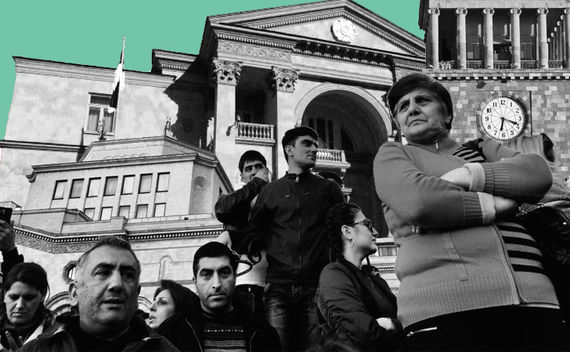
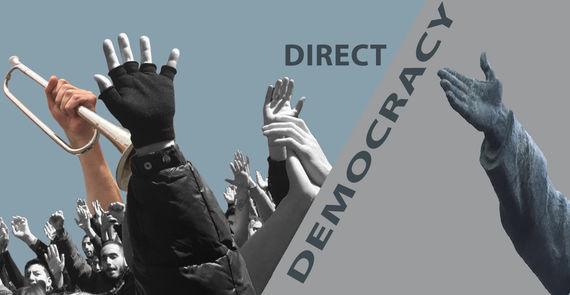
In two parts.
Can Direct Democracy Work in Armenia?
By Joe Nerssessian
After coming to power following the Velvet Revolution, acting Prime Minister Nikol Pashinyan made references on several occasions about direct democracy, saying that the highest power belongs directly to the people. What is direct democracy and can it be applied in Armenia?
August 24 - German Chancellor in Armenia
German Chancellor Angela Merkel was in Armenia for an official visit on August 24. It was her first visit to the Caucasus in the last 10 years; she had last visited Georgia following the Russian-Georgian war over South-Ossetia in 2008. During her three-day visit, Merkel was in Tbilisi on August 23 and in Baku on August 25. The visit to Azerbaijan had become a diplomatic scandal between Baku and Berlin, before it even started. Azerbaijan refused to grant an entrance visa to one of the Chancellor’s official delegation members and a Bundestag member Albert Willard, who had visited Artsakh (former Nagorno Karabakh) without the permission of Baku.
While in Armenia PM Nikol Pashinyan and Merkel held a joint press conference and had an opportunity for a more substantive introduction following their first meeting in Brussels during the NATO Summit in July. The sides discussed domestic Armenian politics as well as anti-corruption efforts and the reform agenda of the new Government. Merkel pledged to help Yerevan implement its landmark Comprehensive and Enhanced Partnership Agreement (CEPA) with the EU signed last November. While in Armenia, Merkel visited Tumo Center for Creative Technology and also did a walkabout in the capital Yerevan with PM Pashinyan, his wife Anna Hakobyan and President Armen Sarkissian
September 22 - “Armenia” Exhibition at the Met
This September, an exhibition titled “Armenia” opened at the Metropolitan Museum of Art in New York City, highlighting the best examples of Armenian art and culture from the 4th to 17th centuries. PM Pashinyan attended the exhibition while he was in New York for the UN General Assembly. The Premier noted that 2018 is a symbolic year, during which Armenian-American cultural ties have been significantly strengthened. “This year the way Armenian culture is presented in the U.S. is unprecedented, which brings Armenia's cultural heritage closer to our American friends. This year marks the 400th anniversary of the Armenian presence on American soil,” Pashinyan noted.
More on EVN Report
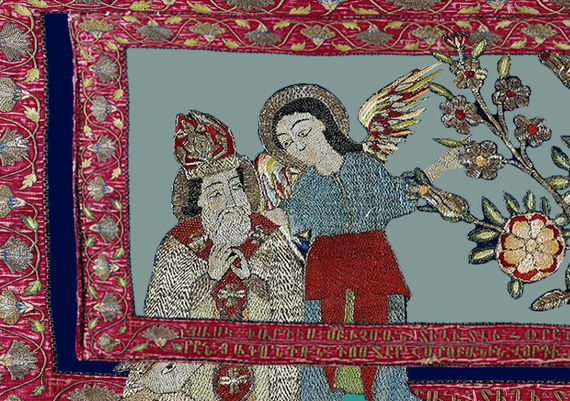
The Metropolitan Museum Puts Armenian Civilization Center Stage
By Christopher Atamian
Armenian culture and tradition, once subsumed into Byzantine or medieval studies, now has its own separate but important place in the history of art and civilization along with others such as Venice, Rome, and Greece thanks to a groundbreaking exhibition entitled Armenia! at the Metropolitan Museum of Art.
September 23 - Yerevan City Elections
Following the Velvet Revolution, there had been numerous calls for the resignation of Yerevan Mayor, Taron Margaryan. It was under public pressure that on July 9, without giving any specific reasons, Margaryan, a member of the Republican Party resigned after holding the post of mayor since 2011. The election of a new mayor failed after city council was not able to secure a quorum on July 16; the Republican Party and Yelk Bloc members did not show up for the vote, effectively paving the way for snap municipal elections.
The Republican Party of Armenia decided against running in the 2018 municipal elections. A total of 979 candidates competed for 65 seats on the city council and 12 parties and alliances of parties took part in the election.
The My Step Party Alliance, with 81.06 percent of the vote, secured a landslide victory in the municipal elections. The Prosperous Armenia Party came a distant second with 6.96 percent of the vote, followed by the Luys Alliance who received 4.99 percent of the vote. The mayoral candidate of the My Step Party Alliance, Hayk Marutyan became the capital's new mayor.
More about the Yerevan City Elections of EVN Report
Yerevan City Elections 2018: Everything You Need to Know
Following the resignation of Mayor Taron Margaryan, the city of Yerevan is now preparing for snap elections. EVN Report presents the parties and alliances that are running for City Council and more.
Yerevan Municipal Elections 2018
The “My Step” Party Alliance, with 81.06 percent of the vote, secured a landslide victory in the Yerevan municipal elections on September 23, 2018. Find out more about the capital's new mayor, the three forces that will make up Yerevan's new Council of Elders, and the course of the elections in EVN Report's overview.
Yerevan Municipal Elections Were Not About Yerevan
By Nerses Kopalyan
Dr. Nerses Kopalyan writes that the municipal election was not about Yerevan, the Council of Elders, or the Mayor: it was about reifying Pashinyan’s dominance of the Armenian political universe.
September 29 - Direct Line of Communication
A secure direct line of communication has been established between Armenia and Azerbaijan, namely between Prime Minister Pashinyan and Azerbaijani President Ilham Aliyev, and now information can be transferred between the two heads of states within 30 minutes. The agreement about establishing an operative connection was reached while Pashinyan was participating in the meeting between the leaders of Commonwealth Independent States in Dushanbe on September 29.
October 1 - Charles Aznavour Passes
Prominent French-Armenian singer Charles Aznavour died on October 1 at the age of 94. Later that evening, people began gathering in Charles Aznavour Square in downtown Yerevan lighting candles and placing flowers in memory of Aznavour. Pashinyan and other government officials also came to the square.
During his 80-year career, Aznavour recorded around 1000 songs, sold more than 200 million records, appeared in 60 films and captivated hundreds of millions of people. Aznavour was a long-time spokesman and fundraiser for Armenia. He organized aid worldwide after an earthquake killed 25,000 people in Armenia in 1988. From 2009, he was the Ambassador of Armenia to Switzerland and the permanent representative of Armenia to Unesco. Armenian and non-Armenian artists, politicians from around the world expressed their condolences and shared stories about their relationship with Aznavour. His funeral took place on October 5, in Paris and was attended by PM Pashinyan and President Sarkissian.
October 2, 2018 - New Bill Triggers Large Protest at Parliament
On October 2, the Republican Party of Armenia, Prosperous Armenia Party (PAP) and the Armenian Revolutionary Federation (ARF) pushed through a controversial bill at a special session of parliament to change the rules of procedure of the National Assembly - something that would hamper Pashinyan’s ability to hold snap elections.
As soon as PM Pashinyan learned about the late night session, he went live on Facebook and called on people to assemble in front of the National Assembly to try and obstruct the vote. Tens of thousands heeded his call. Pashinyan also appealed to parliamentarians to boycott the session and said that any MP that votes in favor of the bill is a “counter-revolutionary.” Despite the fact that the Parliament building was surrounded by protesters starting from 7:30 p.m., the bill was passed with 67 votes from the three parliamentary forces.
According to the three political forces, the bill was to “protect” the Constitution where it states that the work of parliamentarians must not be obstructed and that the National Assembly must be dissolved with the rule of law and not through power.
Speaking to the swelling crowds who had gathered on Baghramyan Ave., Pashinyan characterized the bill as treason and after learning of the decision announced that the ministers in his government from the PAP and ARF, including regional governors, would all be dismissed from their positions. They were:
Artur Grigoryan, Minister of Energy and Natural Resources
Hrachya Rostomyan, Minister of Emergency Situations
Levon Vahradyan, Sport and Youth Minister
Ashot Hakobyan, Communications, Transport & Information Technology Minister
Artsvik Minasyan, Economic Development and Investment Minister
Artur Khachatryan, Agriculture Minister
During his speech, Pashinyan emphasized three reasons for holding snap elections:
Reason 1 - The parliament did not represent the Armenian nation. Because it was elected thanks to mass vote rigging and bribery, its dissolving was supposed to symbolize the emancipation of the Armenian Nation.
Reason 2 - The parliament was rejected by the Armenian nation, because the people deserve a parliament that is representative of them, elected by them.
Reason 3 - Because it was one of the pre-conditions of the Velvet Revolution and it was a part of the new government program that was ratified by the parliament. “It says snap elections should take place within a year and now I can announce that we will have snap elections at the end of November, beginning of December,” Pashinyan said.
Related opinion piece on EVN Report
Backroom Machinations and the Shadow of a Mandate
By Raffi Kassarjian
The dramatic events of October 2, highlights the fundamental political paradox in Armenia – a Prime Minister with no parliamentary majority governs the executive branch in a parliamentary republic – and we experienced both sides “flexing their muscles” to demonstrate their respective powers, Raffi Kassarjian writes.
The bill that was passed in parliament could only come into force after the country’s President signed it within 21 days, which Armen Sarkissian did not do within the specified period of time.
After rallying the massive crowd, Pashinyan walked to parliament to negotiate with political forces, opening the gates with him, allowing the people to walk with him and said that he was going in to negotiate with the other political forces - the MPs had in fact not been able to leave parliament following the vote because all entrances were blocked by protesters.
After almost two hours in the parliament building, Pashinyan emerged and spoke to the people on the steps of parliament. He said that all three political forces had understood the people’s message and promised not to nominate another candidate during the first or the second Parliament session to elect a prime minister following his resignation. “But since I should not be speaking in their name, or might have misunderstood something, I hope that today, tomorrow, or later, they too will clarify things for you during interviews,” he added.
Pashinyan also announced that he would resign in the coming days, which would trigger snap elections in late November or mid-December. He resigned on October 16.
October 2018 - Francophonie
The 17th Summit of La Francophonie took place in Yerevan in early October and brought 105 delegations from 84 countries to Armenia including the Prime Minister of Canada Justin Trudeau, the Presidents of Lebanon and France, Michel Aoun and Emmanuel Macron together with other heads of member states, foreign affairs ministers, ambassadors, and other high ranking officials.
The 105th session of the Francophonie Permanent Council was held in Yerevan on October 7, with over 100 high-ranking delegations of states, governments, affiliated and observer states. The 35th Ministerial Conference of the International Organization of La Francophonie kicked off on October 8-9. Minister of Foreign Affairs Zohrab Mnatsakanyan thanked former Foreign Minister Eduard Nalbandyan because it was during his tenure that Armenia assumed the presidency of the Ministerial Conference and it was decided to hold the 17th Francophone Summit in Armenia.
Prime Minister Pashinyan addressed the audience during the closing of the Forum. He spoke about the Velvet Revolution and said that it was not merely based on politics but rather it was a revolution of the economy, culture, and values. Pashinyan stressed that there are only two preconditions for those who want to be engaged in economic activities in Armenia - operate within the framework of laws and pay taxes. And if those two conditions are respected, the Government of Armenia is willing to assist all new and promising initiatives.
The inauguration of the Village of Francophonie, set up at Freedom Square in Yerevan took place on October 8.
On the sidelines of Francophonie, on October 10, the Economic Forum took place in Yerevan. Sophia the Robot, developed by a Hong Kong-based company was one of the keynote speakers of the Forum and expressed hope to see a world, where Artificial Intelligence and humans will live together. “I know that the unknown can be scary. Technology seems to be changing faster than we can get used to it,” Sophia said.
The celebrations kicked off on October 11 with a grand concert at Republic Square. The closing of the 17th Summit of La Francophonie in Armenia took place on October 12.
October 21 - 2800th Birthday of Yerevan
Yerevan, the capital of Armenia turned 2800 years old this year. It is considered to be one of the oldest continually inhabited cities in the world. The first official celebration of "Erebuni-Yerevan" was held in October, 1968 on its 2750th birthday.
October 25 - U.S. National Security Advisor John Bolton’s Visit
A high-ranking U.S. official, President Trump’s National Security Advisor John Bolton was in Armenia on October 25 and had meetings with PM Nikol Pashinyan and other high ranking officials. Before coming to Armenia as part of his regional visit, Bolton was in Azerbaijan, where he met with Azerbaijan's President Ilham Aliyev and Foreign Minister Elmar Mammadyarov and stated that the U.S. will continue being committed to the peaceful settlement of the Nagorno Karabakh conflict (Artsakh) within the framework of OSCE Minsk Group.
During his visit in Yerevan, Bolton highlighted the importance of developing Armenian-American relations. “The United States supports the new government’s efforts to fight corruption, increase transparency in the judiciary and the government’s accountability to citizens, thereby contributing to democracy, legality and regional stability,” he said.
The U.S. diplomat also spoke about economic sanctions on Iran and how the U.S. Government intends to put maximum pressure on Iran because it has not given up the pursuit of nuclear weapons. Bolton also explained that he acknowledges that if Armenia adheres to U.S. sanctions against Iran, Armenia would have only Georgia as a neighboring trading partner. He stressed that under these circumstance, the mutually satisfactory settlement of the Nagorno-Karabakh conflict should be a top priority, because borders with Azerbaijan and Turkey would open, as a result of which Armenia will have more trading partners and alternatives to choose from.
Bolton also said that buying U.S. military equipment is a viable option for Armenia and noted that instead of being dependant on foreign powers, Armenia has the potential to become a democratic state with strong institutions. The Russian Ministry of Foreign Affairs responded to Bolton’s statements and claimed that Washington was trying to drive a wedge between Moscow and Armenia.
During a special parliamentary session on November 1, Prime Minister Nikol Pashinyan talked about Armenian-Iranian relations and Bolton’s visit. He said he respects every state’s national interests, but at the same time said that Armenia has its own national and state interests which do not always coincide with those of other countries. Pashinyan also confirmed that relationships with Iran and Georgia should be a priority for Armenia.
Related on EVN Report
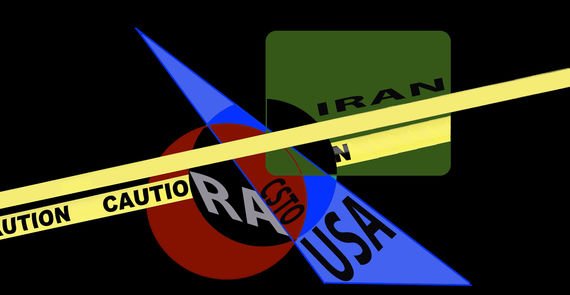
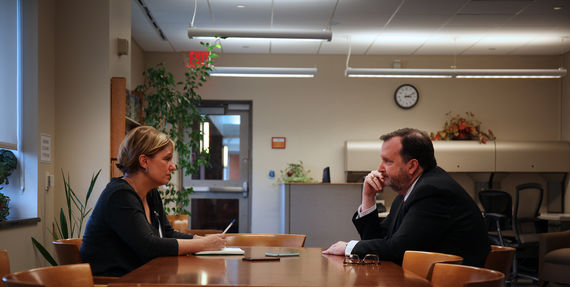
December 7 - 30th Anniversary of the Earthquake
On December 7, 1988, at 11:41 a.m. local time, a devastating 7.0 magnitude earthquake hit northern Armenia, effecting 40 percent of the country. The devastation was so great that for the first time since World War II, the Soviet Union asked for international help; 113 countries responded.
In the aftermath of the earthquake:
21 towns and 342 villages were devastated and another 58 were destroyed.
20,000 people were injured, 12,500 were hospitalized.
An estimated 25,000 people died, with the highest numbers of loss of life registered in Gyumri and in Spitak.
Thanks to the efforts of the population and rescue teams, 45,000 people were brought out from the rubble (survivors and deceased). The last survivors, six friends trapped in the basement of a nine-story building, were rescued 35 days after the earthquake, when rescue efforts had already ceased and cleanup work had commenced.
To mark the 30th anniversary of that catastrophe, a special session of government was held in Gyumri on December 7 and later participated in the commemoration ceremonies in honor of the victims of the earthquake. During the cabinet meeting, the mayor of Gyumri Samvel Balasanyan said that 30 years later there are still 2856 domiks (makeshift containers) in Gyumri.
The 1988 Earthquake on EVN Report
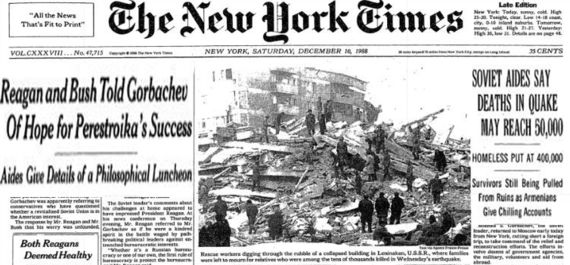
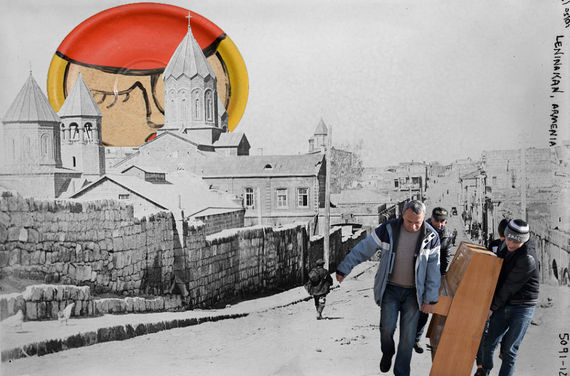
Gyumri 1988 - 2018: Rising Still
By Arpine Haroyan , Gayane Ghazaryan
Thirty years ago, a devastating earthquake ripped through northern Armenia, killing over 25 thousand people, destroying buildings, decimating entire villages and in its ominous wake, leaving a people traumatized. Today, 30 years on, Gyumri, one of the hardest hit cities, is rising.
December 9 - Snap Parliamentary Elections
The My Step Alliance, led by acting Prime Minister Nikol Pashinyan registered a landslide victory in the December 9 snap parliamentary elections, receiving 70.43 percent of the votes. Business tycoon Gagik Tsarukyan’s Prosperous Armenia Party was a distant second with 8.4 percent of the vote, followed by Bright Armenia Party led by Edmon Marukyan, which got 6.4 percent. The Republican Party of Armenia was able to secure only 4.7 percent and the Armenian Revolutionary Federation 3.89 percent of the vote, neither securing the required minimum five percent threshold to get into parliament. The remaining six forces received less than 2 percent each. The Central Electoral Commission reported that the voter turnout was 48.6 percent, which is 11 percent less than the 2017 parliamentary elections (61 percent).
During a press conference held at the My Step Alliance headquarters after the initial results were announced, Pashinyan, in his victory speech said: “It is obvious that we will have an absolute majority in new parliament, which will allow us to implement our reform agenda...There is no doubt that our alliance enjoys the trust of the Armenian people.” In his remarks, Pashinyan promised that an economic revolution would follow the Velvet Revolution. Later, Pashinyan commented on the lower voter turnout compared to the 2017 elections claiming that it was mostly because voters are no longer bribed by the Republicans and because his supporters were confident about My Step’s landslide victory.
According to the Electoral Code of Armenia, on the 7th day following the elections, the Central Electoral Commission (CEC) finalized its report on the voting results. The Electoral Code stipulates that the distribution of mandates is as follows: the number of votes received by parties or blocs is multiplied by 101 (the minimum number of mandates in the National Assembly) and is divided into the sum of votes received by the political forces that passed the required minimum threshold (five percent for parties, seven percent for blocs). Four mandates are distributed among the four largest national minority groups (one for each). An additional 16 seats will be given to Prosperous Armenia and 11 to Bright Armenia to make sure that the opposition constitutes 30 percent of the Parliament, according to the Electoral Code. The National Assembly of the 7th Convocation now has 132 deputies - 88 from My Step alliance, 25 from Prosperous Armenia and 19 from Bright Armenia.
The statements by the International Elections Observation Missions such as the European Union (EU), Organization for Security and Cooperation in Europe (OSCE), the Parliamentary Assembly of the Council of Europe (PACE), and the Commonwealth of Independent States stressed that the elections in Armenia were held with respect for fundamental freedoms and enjoyed broad public trust. The observers also noted that the general absence of electoral misconduct, including vote buying and pressure on voters, allowed for genuine competition among the 11 forces running for seats in the Parliament. And despite the limited timeframe, the Central Election Commission (CEC) conducted its work professionally and met all legal deadlines, and there was general confidence about the results.
The parliamentary elections on EVN Report


Women Continue to Sit on the Sidelines in Armenian Politics
By Gohar Abrahamyan
Despite the fact that more than 50 percent of Armenia’s population are women, only one party has entrusted the number one slot on its electoral list to a woman. Gohar Abrahamyan takes a look at which forces have the most women on their lists and why women’s presence alongside men is not the result of good will and remains problematic.
Legislative Changes
Mandatory Pension System
The controversial mandatory pension fund was introduced by the country’s previous administration and aimed to radically reform the pension system back in 2008. The scheme would make it mandatory for those born after 1973 to contribute at least five percent of their wages (gross) to private pension funds, hence easing financial pressure off the state.
Many in the country raised concerns over the privatization of the pension system citing risks that included financial market volatility (that would impact future payouts to pensioners), high costs associated with managing private pension accounts, lack of transparency, among others. After protests led by a civic initiative called “Dem Em,” in 2014, the government at the time allowed employees in the private sector to opt out of the system until July 2018, excluding state employees. On June 11, 2018, the government decided not to extend this option for employees in the private sector, but did temporarily cut the contribution rate to 2.5 percent
Former Minister of Labor and Social Affairs, Mane Tandilyan was one of the leaders of the “Dem Em” movement in 2014, and after the government approved a decision to fully implement the mandatory pension system, she resigned from her post on June 12. In a Facebook post she said that she had expressed her position to postpone the full implementation of the mandatory component for one year and make changes to the system through public discussions, to provide different solutions to stakeholders, with the principle of free will at its core.
However, the Prime Minister refused to accept the resignation and after discussions Tandilyan decided to continue working together. Even though the new system entered into force starting from July 1, Pashinyan stressed that the system needs to be reformed in the coming months with the support of other cabinet members in order to be more beneficial for the affected stakeholders.
The Law on Amnesty
During the special parliamentary session on October 31, the National Assembly adopted the bill on granting amnesty with 72 votes in favor of the legislation. Prisoners who will be affected by the bill include:
persons sentenced to a maximum of four years term;
persons whose punishment has been postponed;
persons sentenced to a maximum of a six year term, who as of the date when the law enters into force have children up to three years old; are pregnant; have three or more minors; are 60 or more years old; have a first or second group of disability; have committed an offense before the age of 18 and have not been convicted or incarcerated previously;
persons whose spouse, child, or parent died during the military operations of the Great Patriotic War, Afghanistan and Nagorno-Karabakh (Artsakh) war, and have not been convicted previously, etc.
While presenting the bill at the National Assembly, Minister of Justice Artak Zeynalyan explained that the goal of the amnesty is not to address the issue of overcrowding in penitentiaries, but rather it is an exclusively humanitarian act. To support his claim, Zeynalyan presented statistics showing that there are 2880 detainees and convicts in penitentiaries, while the number of beds in those institutions is 5346.
This is the ninth amnesty declared since independence and will affect about 6500 individuals.
Amnesty on EVN Report
The Law on Amnesty: Humanitarian Act or Politically Motivated Decision?
By Lusine Sargsyan
Amnesty is practiced in countries where judicial independence is weak or compromised and courts are among the most mistrusted institutions. This year, the ninth amnesty was announced in Armenia. Considering its timing and the stakeholders it affects, some argue that it was politically motivated.
Tax Code
Following the changes in the Tax Code, it is expected that in 2019 Armenia will switch to a single income tax rate of 23 percent. It is also expected that by 2023, income tax will be reduced to 20 percent and once it is reduced to 20 percent, the contribution to the mandatory pension fund paid by citizens will be increased to 5 percent (now citizens’ contribution is 2.5 percent, while the government’s contribution is 7.5 percent).
According to the existing rates those who earn up to 150,000 AMD ($309) pay 23 percent income tax, tax rate for incomes ranging from 150,000 to 2 million AMD ($309 - $4130) is 28 percent, while those earning more than 2 million AMD pay 36 percent income tax.
Increased Minimum Pension Threshold
On November 29, the Government announced its decision to increase the minimum amount of pensions to 25,500 AMD ($53) per month, which is currently 16,000 AMD ($33). The decision will enter into force on January 1, 2019 and will benefit 85,000 people (the elderly, people with various degrees of disability and those who lost their sole breadwinners). Currently, there are 497 thousand people in Armenia aged 65 and above who are retired. The average pension in the country is around 41,000 AMD ($85). The increase in pensions will cost the state around 6.7 billion AMD in 2019.
Amulsar
Lydian Armenia, the joint British-U.S. company which controls the right to the Amulsar gold mine pressed charges against the government of Armenia after it was announced that it had to stop all activities until a new environmental impact assessment is conducted.
Amulsar is located on the border of the Vayots Dzor and Syunik regions of the country. There have been claims that exploitation of the mine would jeopardize the health of residents and pollute the environment.
On July 1, a group of around 100 activists from Yerevan visited the province of Vayots Dzor to raise awareness among the public about mining at Amulsar and its potential dangers. Stopping at villages and towns in the region and passing out leaflets and talking to residents about the issue. A day later, the employees of the Amulsar Mine Operating Company, Lydian Armenia, held a protest in front of the government building in Yerevan. While environmentalists see a potential high risk of countrywide water contamination from the mine due to acid drainage which they say if leaked is set to contaminate groundwater reserves, rivers and channels that reach all the way to lake Sevan, Armenia’s largest water reserve and from there reach the Ararat valley as irrigation water. Lydian on the other hand says the company has been granted permission to operate and it has been done on the basis of environmental risk assessment and that they have met all the prerequisites of the contract.
On a number of occasions, Pashinyan prioritized the protection of water resources of the Sevan reservoir and Jermuk and noted that any solution should be based on concrete facts. He said that if Amulsar does not pose threats to the environment or human health, then the project will probably continue being implemented considering the amount of investments that have already been made by the company.
It also became known that the Prosecutor General’s Office, Department of Protection of State Interests has launched a criminal case against Lydian International and the preliminary investigation revealed evidence showing that the company conducted unauthorized mining operations and intentionally concealed information on pollution.
The environment on EVN Report
State Governance Failures in Mining and Lessons for Armenia’s Future
By Alen Amirkhanian
In his first piece for EVN Report. Alen Amirkhanian writes about the current state of the mining industry in Armenia. He argues that mining governance, from decision-making process on granting mining licenses, monitoring performance to ensuring compliance with laws and standards, is defective and in need of determined reform.


